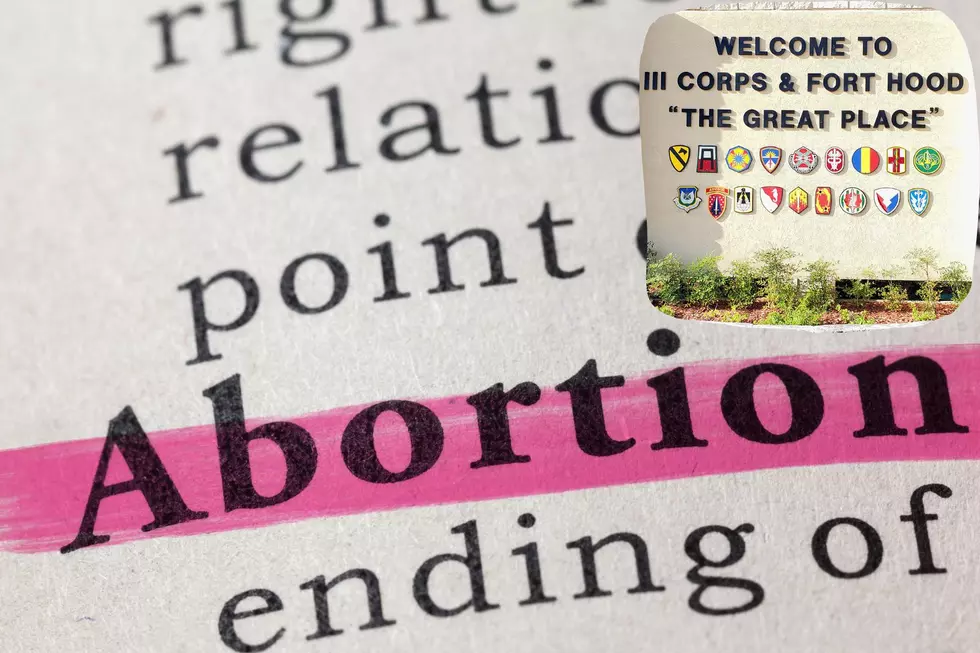
14 Fort Hood Leaders Fired or Suspended Following Independent Review
Army Secretary Ryan McCarthy announced Tuesday that 14 commanders and other leaders at Fort Hood will be relieved or suspended based on the findings of an independent review of the the base's command culture and climate.
In a news release, the U.S. Army listed the following leaders as relieved of duty:
Maj. Gen. Scott L. Efflandt, deputy commanding general (Support), III Corps
Col. Ralph Overland, 3rd Cavalry Regiment commander
Command Sgt. Maj. Bradley Knapp, 3rd Cavalry Regiment command sergeant major
The following leaders were listed as suspended "pending the outcome of a new Army Regulation (AR) 15-6 investigation of 1st Cavalry Division’s command climate and Sexual Harassment/Assault Response and Prevention program":
Maj. Gen. Jeffrey Broadwater, 1st Cavalry Division commanding general
Command Sgt. Maj. Thomas C. Kenny, 1st Cavalry Division command sergeant major
Army officials did not release the names of the battalion level and below commanders and leaders who received administrative action, citing a a policy intended to protect individual privacy.
According to Tuesday's news release, the Army is also opening a separate AR 15-6 investigation into the resourcing, policies, and procedures of the 6th Military Police Group, Criminal Investigation Command.
"Army leaders command and serve in critical positions because senior leaders and Soldiers have trust and confidence in their abilities and character," the Army's statement reads. "When a senior leader loses trust and confidence in a subordinate commander or leader, it is appropriate and necessary to relieve that person. Relief is an administrative mechanism to ensure that our Soldiers always have the best qualified and capable leaders and commanders."
Secretary McCarthy also announced Tuesday the creation of a new directive clarifying expectations and responsibilities of unit commanders and Army law enforcement officials within the first 48 hours of a soldier failing to report for duty.
The directive calls for the creation of a new duty status code - "absent-unknown" (AUN).
“When one of our teammates does not report for duty, we will change their duty status to ‘absent-unknown’ and take immediate action to find them," Secretary McCarthy said.
Commanders will use the AUN status as a transitory duty status for up to 48 hours with an increased emphasis on maximizing efforts to locate the soldier in question rather than simply listing them as "absent without leave" (AWOL). AWOL status will not be assigned to a case until it is determined "by a preponderance of evidence" that a soldier's absence is voluntary.
If that burden of evidence is not met, commanders will be required to classify the absent soldier as missing, at which the Army will initiate a “duty status whereabouts unknown” (DUSTWUN) casualty case. Under such a case, a liaison officer will be assigned to the soldier's family as the military conducts a search for their loved one.
Additional guidance will also be offered to commanders and law enforcement concerning steps to be taken in order to classify any soldier as a deserter.
Tuesdays actions came after a review of the base by what was dubbed the Fort Hood Independent Review Committee, which arrived at the installation in August. The FHIRC was tasked with examining both the command climate and culture at Fort Hood. It was made up of five civilians and support staff who conducted over 2,500 interviews with soldiers and civilians, including 503 female soldiers from 3rd Cavalry Regiment and 1st Cavalry Division, as well as Equal Opportunity and SHARP program representatives.
The FHIRC reported a "deficient climate" at the base, which included, "ineffective implementation of the Sexual Harassment/Assault Response and Prevention (SHARP) program that resulted in a pervasive lack of confidence, fear of retaliation, and significant underreporting of cases, particularly within the enlisted ranks."
According to their report, which was submitted to Army leadership on November 6, Fort Hood leadership knew or should have known about the high risk of harm to female soldiers in particular.
“The committee determined that, during the time period covered by our review, there was a permissive environment for sexual assault and sexual harassment at Fort Hood," Committee Chair Chris Swecker said. "We have recommended changes to the staffing, structure and implementation of the SHARP program at Fort Hood, and possibly beyond, to address deeply dysfunctional norms and regain Soldiers’ trust.”
The FHIRC's report also found that Fort Hood's CID detachment was "under-experienced and under-assigned", which the committee determined were factors that adversely affected the investigation of both sex crimes and the deaths of soldiers on and around base.
In response to the FHIRC's report, Secretary McCarthy has announced the creation of the People First Task Force, which will use the committee's recommendations to develop a plan of action to address the concerns and issues identified, as well as reevaluate current policies and programs.
The People First Task Force will be made up of representatives from across the Army, and will be co-chaired by Lt. Gen. Gary M. Brito, the Deputy Chief of Staff, G-1; Ms. Diane M. Randon, the Assistant Deputy Chief of Staff, G-2; and Sgt. Maj. Julie A.M. Guerra, the Deputy Chief of Staff, G-2 sergeant major.

Mural Honoring Vanessa Guillen Will Stand Outside Fort Hood's East Gate
More From KTEM-AM








